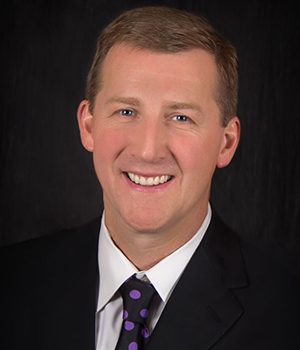
Gruff, chain-smoking Ralph Miller presided over the golden era of Oregon State basketball with a parade of West Coast stars like Charlie Sitton, Steve Johnson and Gary Payton. His coaching acumen led to perpetual league championships and an eventual #1 ranking. His philosophy was simple. To win, first eliminate habits that cause losing. In basketball terms eliminating dribble penetration, offensive rebounds and turnovers produced winning results.
Employers have been conditioned to believe that 7-10% annual premium increases are inevitable due to ever-increasing prices for hospital stays and pharmacy drugs. This philosophy has flattened out real wages for employees as higher deductibles and premium share increases offset hard-earned growth in wages.
Some employer groups deserve a 10% or higher increase based on high usage or unhealthy participants. However, employers with 35-500 participants, with merely average health status can earn flat to negative renewals with a disciplined approach to self-funding their claims.
We have found that rather than giving in to the myth of inevitable medical cost trends, employers can exert real influence on their health care supply chain by stopping the following losing habits.
Stop ceding control of health plan data to third parties
Employers must stop relinquishing control of their claim and health data to component suppliers who are intent on using this data to maximize their own revenue. Insurance carriers who refuse to release claims data may offer fair renewal terms, but we also see scenarios where plan members who are no longer alive being cited as rationale for increased rates.
Pharmaceutical companies purchase plan data to offer free samples to physicians within days of lab samples being taken from patients. This appears benign but can lead to unneeded purchases of drugs costing $120,000 annually for sleep disorders or brand name insulin being sold when generic equivalents are available for 50% less.
Employers should instead build ecosystems with their advisers to capture their own data. This data can be used to direct employees to lowest cost drugs or to provide nurse outreach to proactively prevent stroke or heart attack. Additionally, better data creates an even playing field for negotiating renewal pricing based on ongoing risk.
Stop letting providers control strategy
Employers must stop allowing their local hospital or physician to control referral of care. Instead clinical care should flow to the best quality and lowest cost options available, even if it means directing them outside the hospital. It is logical and predictable for hospital employed physicians to only refer care to the hospital system that signs their paycheck. It may not, however, be good for employers or their plan participants. We have seen hospitals keep procedures like knee replacements in-house at costs estimated at $70,000 when the same procedure could be done for $20,000 at an alternate site.
Employers must also stop allowing surgical groups to double bill or inflate charges without audit oversight. A strange but true component of many brand name network arrangements is contractual agreement to refrain from auditing the bills of in-network providers. This can lead to scenarios like a recent sinus surgery that was billed at $76,000 rather than $12,000 due to multiple duplicate entries. Instead, employers can negotiate in advance with like minded community providers who agree to full auditing of bills and pre-negotiated reasonable pricing.
Stop expecting employees to self direct wisely
Employers must stop expecting employees to act as wise consumers on their own. This is simply naive. Most employees are not interested, skilled or sufficiently motivated to act in that capacity. Currently, employees make healthcare choices without sufficient information regarding the cost or quality of services. Efficient operators would never allow unlimited buying of business supplies in this fashion. Yet, healthcare purchasing dwarfs the cost point for other major purchases such as auto fleet, technology or phone supplies.
Instead, employers should partner with advisers in providing skilled handholding for employee events like surgery, imaging and cancer treatment to minimize cost and maximize outcomes. Wise steerage can lead to substantial price reductions that allow employers to waive all procedure costs for plan members as an incentive.
Collaborate for a change
It is possible for employers to win again in offering healthcare to their employees by investing the time and intellectual capital necessary to build a custom healthcare ecosystem and engaging their team members in collaborating for wise choices.
It is possible to freeze or reduce spending by building collaborative partnerships with local clinics and providers who are efficient in providing specific and still profitable pricing prior to service. These physicians reap long term repeat customers who remain patients long enough for the provider to make a real difference in their health status.
It’s possible to win, but only if employers stop the losing habits drummed into them by years of giving in to uncontrolled spending in their healthcare supply chain.
Pete Scruggs is the founder of the benefitSMART coalition of employers who are dedicated to “Buying Healthcare Better” and a contributing author in the Amazon best-selling book “Breaking through the Status Quo.”


